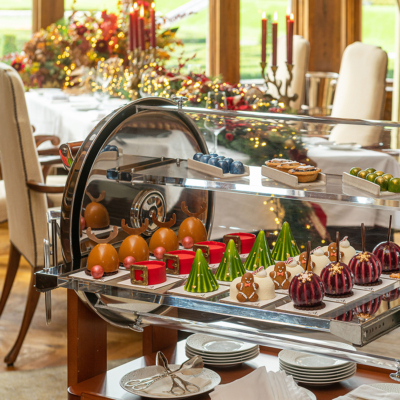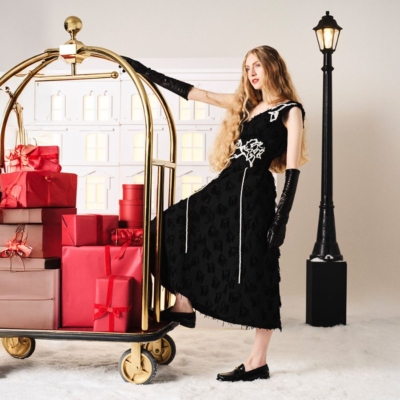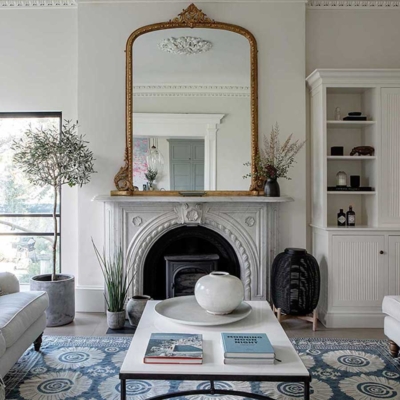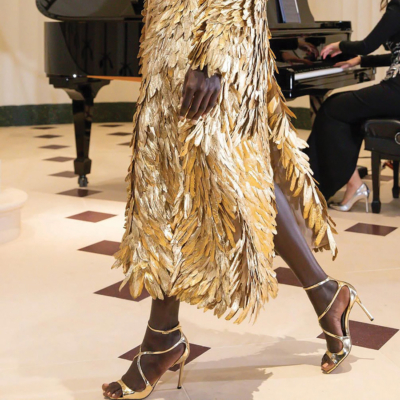Journalist and author GEORGINA LAWTON grew up a mixed-race child in a white family. A DNA test revealing her West African heritage helped her challenge her mother, who is Irish, to reveal the truth about her biological father …
On a brilliantly hot Caribbean morning in March 2017, as the first of the day’s sunshine poured through the shutters of my tiny beachfront apartment and spread across the floorboards like warm golden syrup, I received the results of my third DNA test in a year. I looked out of the window at a sparkling sea moments from my building. I was seconds away from giant palm trees, crystalline waters and powdery white sands on Nicaragua’s Corn Islands, 3,241 miles away from my old life on the outskirts of London. But that morning I had to confront my past and everything I’d left behind. And I had to tell my mum of my genetic news. I didn’t know how she’d react.
Down a surprisingly clear FaceTime link to London, I said, “I’ve got the test results back.”
What followed was a long stretch of silence. Then, finally, a response. “Oh. So, what did it say?”
“Well … I’m Nigerian.” Another pause.
“Forty-three per cent actually. And the rest of me comes from Ireland, which we know since that’s from you … ” I trailed off.
I decided to ask the question that was on the tip of my tongue, but which I knew would obliterate the conversation in a matter of seconds. To toss the verbal grenade I had in my pocket.
“So, do you think my biological father could be Nigerian?” I asked flatly. “Is this maybe jogging your memory at all?”
“I don’t want to talk about this.”
“Mum, we need to –”
“I don’t have anything else to say, Georgina.”
The rage came quickly, I was somewhat surprised at its potency, even though I was so far from my mother’s physical presence, I could feel it practically radiating off my body, vibrating through the phone. How could she not understand? How could she not tell me?
“Well you need to try harder because this issue isn’t going away,” I hissed. “I want answers. I think I deserve them at this stage.”
Another pause. “I’ve got nothing else to say.”
It’s safe to say this was not the reaction I’d been hoping for. I’d only waited my whole life to put a name to the country responsible for my appearance; I’d only been trying to piece together my identity on my own for over two decades, straddling the borders of a racialised existence outside my family and a non-racialised one in their presence, all the while dealing with projected ideas from strangers about what I looked like, who I resembled, what I was. I’d just found another piece of the puzzle, I’d worked it out on my own, but there was no support from the one person I needed it most from. My mum refused to hear me, to understand why this was so desperately important.
Who my biological father was, how I was brought into the world, my ancestry – all of it was off-limits. In those moments, the emotional chasm between us far exceeded the physical distance.
I was starting to realise that this absence of discussion had been something of a recurring theme throughout my childhood. And so when I felt the nothingness creeping into our call again that morning, I chose to leave before the fury took hold of me once more.
“I was loved, cared for, doted on. But I was also different from everyone around me – because everyone is white, and I am not.”
That morning I’d been woken up by a heat so heavy it felt like I was wearing it, a second skin. A dampness coated my back, and my throat was dry as I had processed my DNA test results and called my mum to discuss the truth about the heritage of the daughter she had raised. It felt all the more surreal calling from Nicaragua, a chaotic, colourful country that couldn’t be more different from the smallness and safeness of my home town basically. It was a mad phone call, a mad time, but this madness was far more bearable than the one which had defined so much of my life before. I realised that I couldn’t escape who I was; the compulsion to uncover the truth had followed me halfway round the world. But, I thought to myself as I looked out of the window again, there were definitely worse places to be in the throes of an early-life identity crisis.
I had grown up cushioned and comfortable, with two loving parents and a brother three-and-a-half years younger than me, in a home that was stable and secure. I was loved, cared for, doted on – a Daddy’s Girl. But I was also different from everyone around me – because everyone is white, and I am not. This simple, yet bewildering, difference was highlighted to me a handful of times outside my home as a child, then as I grew older, with increasing frequency. But it was never really explained by the two people who held the key to all the answers: my parents. In fact (and I know it sounds implausible), everything race-related went largely unacknowledged between me and my mum and dad, between my brother and me, and between my parents and their families and friends – until I started asking questions. I was an inquisitive child with an anti-authoritarian streak that would rear its head at inopportune times, but which was probably linked to the fact that my very existence was contradictory and nonsensical. I was looking to find my place in the world around me. And, so, naturally as I grew older, my questions became plagued with urgency, because when I was born, my mum and dad simply introduced me to everyone without explanation – as if it were the most normal thing in the world for two white parents to produce a black child. And this sort of thing went on for approximately oh, say, another 22 years.
As a child I spent a very long time trying to work everything out for myself before eventually becoming invested in upholding the story my parents told me: I was theirs and that’s all that mattered. It was none of anyone’s business where I was ‘from’. But race didn’t care about my family lore, or my parents’ inability to discuss our differences. Race was dogged in its desperate pursuit of me; it could not be ignored, it was inescapable. And as much as I tried to brush it off, as much as I tried to believe what I was told, race attached itself to me, a little more, year on year.

I staunchly defended my story and myself (as I had been taught by Mum), and believed her when she occasionally said I was white, like her. Why? Well because children have no choice but to believe in the world defined for them by adults – it is natural, instinctual and self-preserving. I certainly didn’t have the understanding required to challenge my parents, because well, you know – I was a child – and so I took refuge in our story, because belonging is everything.
By 14 or so, I was a bit more cynical. I’d moved away from “I’m white like my parents” to “I think I’m mixed-race but I’m actually not sure what I’m mixed with?” – progress – albeit minuscule. I wanted answers, but I didn’t know how to get them. Even though it was never affirmed, I felt on some level that asserting myself could result in upheaval, heartache, disruption and as a child that’s a terrifying prospect to contend with – the notion that your very existence poses a threat to the established order, that your questions could change everyone and everything around you. I wanted things to stay as they were, I loved my family, I loved our life, our routine, our dinners and days out. What child would choose to belong anywhere other than the home in which they were loved?
Before everything changed, all I’d known was life with my mum, dad and younger brother, with annual summer holidays to Co Clare, which is home to my mum. I saw Clare in sprawling landscape photographs on the DNA-testing homepage that morning, a smorgasbord of grey and green cliffs jetting out into the Atlantic Ocean and glossy fields like the ones I had run through on my childhood summer holidays. I remembered wet and windy family memories built on annual summer pilgrimages to the tiny town of Doonbeg, close to where Mum was born. I could smell salty sea and stale alcohol, the silage in the fields, and the lingering whiff of smoky turf in the evening air. I could feel the hay beneath my heels as I leapt from bale to bale. I could see my parents getting ready for a night out, myself and my brother tucked up in the bedroom my granny slept in, watching wistfully as my mother applied lipstick and my father chastised her for taking too long. I could hear my mother singing “The Fields of Athenry” as I ate a bag of Taytos in the cracked red leather booth of a smoke-filled bar, as a red-faced man with an indecipherable accent slipped me a Euro. I knew Ireland almost like I knew Britain, and these were my only two cultural identities, despite what my outward appearance might have suggested.
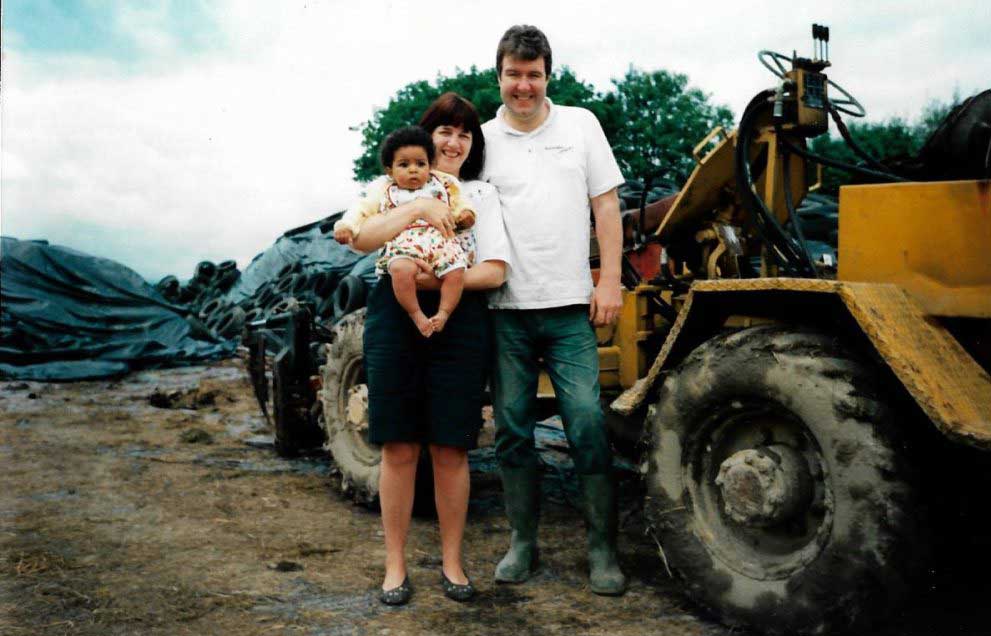
Baby Georgina with her mother and father.
And then everything changed. In 2014, a series of destabilising events uprooted us all: my dad died of cancer, aged 55. And a year after his death, when a callus had not yet formed over our grief, a series of DNA tests proved what I had always imagined, and what I had always feared the most: that one of my parents was not my own. My Irish mum and English father could not have produced me, a brown-skinned, curly-haired baby. Finding this out without my dad around turned my home into a hellish matrix of what it once was; a parody of everything I used to love. The aftermath propelled me from the familiar spaces I knew as home with jet force. I left in the hope that I could peel off all my layers and find who I was really meant to be, at the very centre. That third DNA test which told me of my ancestry followed on from two family DNA tests (one paternity, one sibling). Navigating the confusing results from all these shattered my segments of self, built up over two decades, into nothingness. I left home to escape, to rebuild, to breathe.
That morning in Nicaragua when I clicked the link to my DNA test results, fear gripped me by the neck. I had grown tired of trying to shrink myself into the confines of an identity that didn’t make any sense but I was still scared. I thought of my father, whether what I was doing was somehow disloyal. Dad’s love for all of us was gargantuan; a love that was constant and absolute. After cancer stole him, the world became colder and harsher. A desperate need to know who I was and where I belonged occupied a space in my head which previously had been filled with my father’s gentle reassurances and the warmth of his presence in my life. Now that he was gone, it was harder to mute the voice in my head which had told me I could live with not knowing, that I was asking for too much, that my real racial identity didn’t matter, that I was being ungrateful for even pursuing the truth. I know now that voices like these arrive when we are scared; they exist to keep us cocooned in the safety of our comfort zones, and if we were meant to settle for a life that was mediocre, we would never fear drowning out that voice.
If our lives were meant to be half-known and half-lived, we would give in to that voice which keeps us safe and small and stops us from making monumental changes. I was most definitely done with having half a story, half an identity, and in many ways, half a life. So I ignored that voice and decided to sacrifice softness and safety in my search of answers. And of course, there is always a better life waiting for you beyond your comfort zone.
From Raceless, In Search of Family, Identity and The Truth About Where I Belong, by Georgina Lawton (Harper Collins, €16.99)
LOVETHEGLOSS.IE?
Sign up to our MAILING LIST now for a roundup of the latest fashion, beauty, interiors and entertaining news from THE GLOSS MAGAZINE’s daily dispatches.






